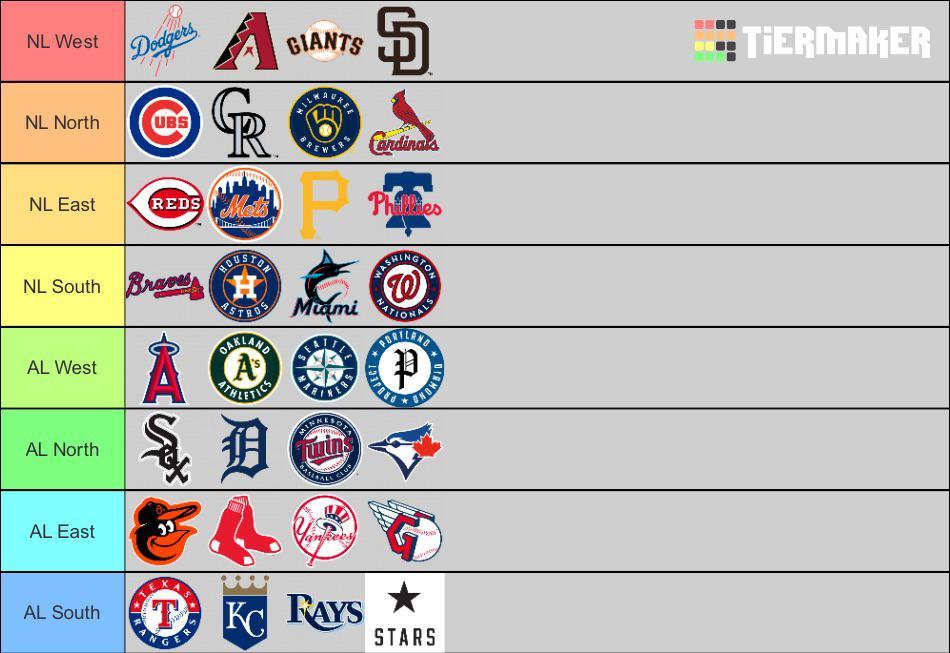How MLB Realignment Might Impact the Braves – Battery Power
As Major League Baseball (MLB) weighs the potential for realignment, discussions intensify regarding how these changes could shape the future of teams across the league. Among the franchises closely monitoring these developments is the Atlanta Braves, a team with a storied history and an expanding fan base. With the possibility of a reshuffled schedule and altered rivalries, the Braves could see significant impacts on their competitive landscape, travel logistics, and overall strategy. This article delves into the implications of MLB realignment, examining how the Braves might adapt to a new era in baseball while navigating both challenges and opportunities that lie ahead.
Potential Benefits of Realignment for the Braves’ Competitive Edge
The potential for realignment within Major League Baseball could present the Atlanta Braves with a distinct competitive edge, particularly in terms of scheduling advantages and increased fan engagement. By possibly shifting their division rivals, the Braves could find themselves facing teams with lower win percentages, enhancing their chances of securing more victories during the regular season. Additionally, a revised schedule might allow for more attractive matchups with teams from other divisions, leading to increased attendance and better overall fan experience at Truist Park.
Moreover, realignment could facilitate a stronger focus on regional rivalries, which tend to boost both viewership and ticket sales. A reduction in travel demands would not only help keep players fresher throughout the season but could also lead to higher win rates for the Braves, especially in critical late-season games. The restructuring of divisions may also encourage new strategic opportunities, enabling the Braves to better tailor their roster moves and game plans based on the unique strengths and weaknesses of newly aligned opponents.
- Advertisement -
Challenges Ahead: Navigating a New Division Landscape
The recent discussions regarding Major League Baseball’s potential realignment have left teams, including the Atlanta Braves, facing a host of significant challenges. One of the most pressing issues will be adapting to new rivalries and travel schedules that could impact both player performance and fan engagement. With the prospect of facing teams from different divisions more frequently, the Braves may need to reassess their strategies, adjusting their roster depth and pitching rotations to cope with the more intense competition.
Moreover, the financial implications of realignment should not be overlooked. Changes in division alignments could affect revenue streams stemming from ticket sales, broadcasting deals, and merchandise. The Braves will need to examine their business models closely, ensuring they maintain a resilient economic foundation while navigating these shifts. Factors to consider include:
- Impact on Home Game Attendance: New rivalries could either boost or hinder attendance.
- Broadcasting Contracts: Realignment might lead to renegotiations with networks.
- Sponsorship Opportunities: A new landscape may attract different sponsorships.
| Factor | Potential Impact |
|---|---|
| Fan Engagement | Increased or decreased participation in games. |
| Team Rivalries | Shifts in emotional investment from fans. |
| Travel Schedules | Impact on player health and performance. |
Strategic Moves: Recommendations for Atlanta in a Shifting MLB Environment
As Major League Baseball grapples with potential realignment, the Atlanta Braves must prioritize strategic initiatives to maintain their competitive edge. To adapt to these changes, the Braves should consider strengthening their player development pipeline, ensuring a steady influx of talent that can compete at the highest level. Emphasizing the following points could prove crucial:
- Invest in Scouting: Enhance scouting efforts to identify under-the-radar prospects who can be impactful in a restructured league.
- Flexibility in Roster Management: Develop a versatile roster that can adapt to different playing styles depending on division opponents.
- Data-Driven Decisions: Utilize analytics to make informed decisions on player acquisitions and in-game strategies.
Furthermore, enhancing fan engagement and bolstering community relations will be essential as the Braves look to sustain their loyal fanbase amid potential rivalries reshaping. Strategies could include:
- Advertisement -
- Community Outreach Programs: Establish programs that deepen ties with local communities and champion youth participation in baseball.
- Interactive Fan Experiences: Implement technology that allows fans to feel more connected during games, whether through immersive apps or virtual reality experiences.
- Dynamic Promotional Campaigns: Tailor marketing efforts to reflect changing rivalries, offering unique promotions to draw fans to games.
Final Thoughts
As Major League Baseball considers potential realignment in the wake of evolving team dynamics and geographical shifts, the implications for franchises like the Atlanta Braves are significant. Whether it leads to more regional rivalries, changes in playoff formats, or alterations in travel schedules, the outcome of this realignment will undoubtedly shape the future landscape of the sport. For Braves fans and players alike, the coming changes could offer new challenges and opportunities on the field. As we await further decisions from MLB officials, one thing is clear: the Atlanta Braves will need to adapt and evolve to maintain their competitive edge in an ever-changing league. Stay tuned to Battery Power for ongoing analysis and insights as the story develops.


